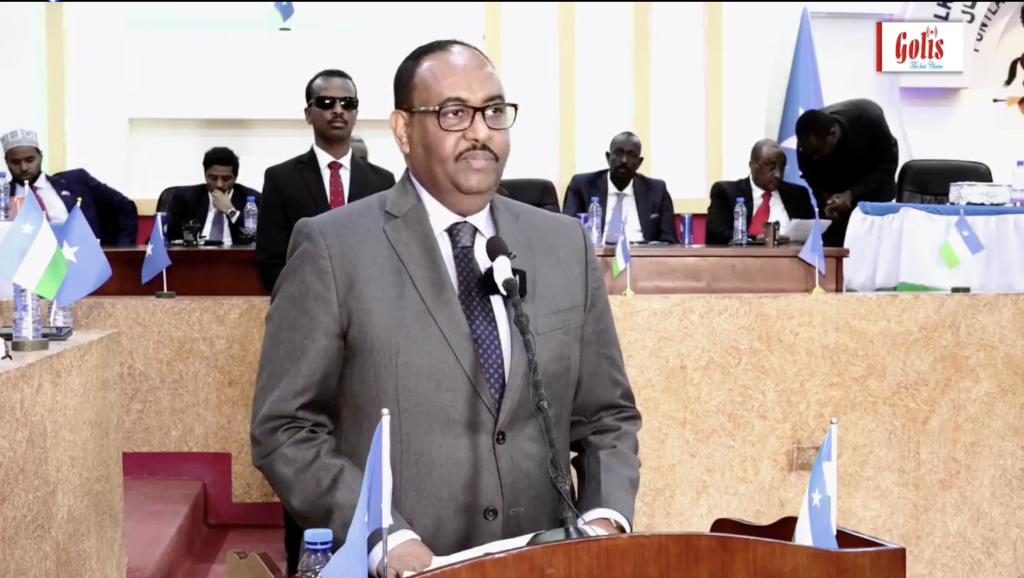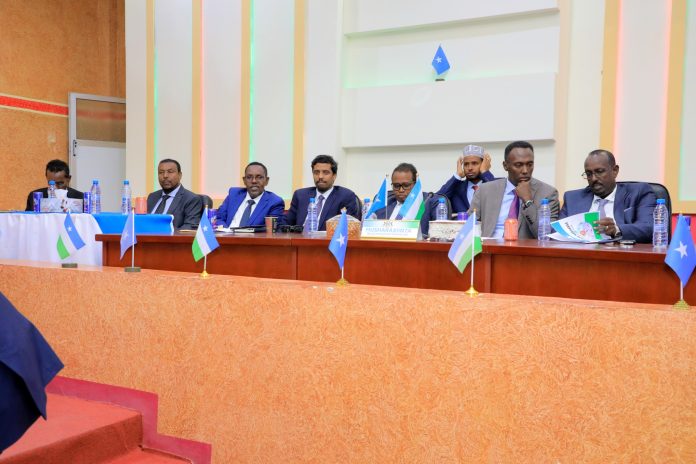GAROWE (KAAB TV) – Tomorrow marks a pivotal moment for the Puntland State of Somalia as members of the 6th Parliament are set to elect a president and vice president to guide the region for the next five years.
Against a backdrop of strained relations between the northeastern Somalia state and the Federal Government of Somalia, this election holds significant implications.
Eleven candidates vie for the presidency, including the incumbent Said Abdullahi Deni, former Prime Minister Abdiwali Ali Gas, and ex-Foreign Minister Abshir Jama Huruuse.
Similar competition unfolds for the vice presidency among 11 candidates. Notably, only one of the 66 parliamentarians is a woman, reflecting the intricacies of clan elders’ selection due to security challenges and community opposition.
The impending election revolves around several critical issues:

Clan Power Dynamics
The traditional rotation of the presidency among the major clans of Garowe, Galkayo, and Qardho plays a pivotal role. While parliamentarians cast the vote, clan power-sharing remains influential in this historical process.
Security Concerns
Paramount in this election is the imperative of the security of Puntland, which has been embroiled in prolonged conflicts with terrorist groups such as ISIS and Al-Shabaab. The resurgence of pirate groups adds another layer of complexity.
SSC-Khatumo Dilemma
The ongoing saga with SSC-Khatumo, despite their recent departure from Puntland, continues to impact the political landscape. Representatives from Sool, Sanaag, and Ayn remain in the 6th Parliament of Puntland, fueling discussions about the SSC-Khaatumo’s future relationship with Puntland.
Democratization and Justice Reform
Despite 25 years of existence, achieving full democracy remains a challenge. The dream of a ‘one person, one vote’ system persists, with women’s activists expressing hope for increased inclusivity. That dream was abandoned just in November after armed opposition politicians and clan elders opposed it.
Federal Government Relations
Puntland’s stance on federalism and its relationship with the Mogadishu government feature prominently. While some candidates advocate for defending Puntland’s constitutional rights as a federal member state of Somalia, others propose engagement in dialogues.
Economic Challenges
Candidates address issues of poverty, unemployment, and corruption in Puntland. Concerns about unequal distribution of job opportunities and development projects raise questions about economic inclusivity.
As Puntland stands at this critical juncture, the outcome of the election may reshape historical narratives, influencing the trajectory of not only the region’s political, security, and economic landscape but of the entire Somalia.


